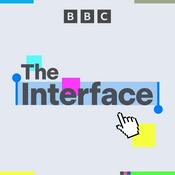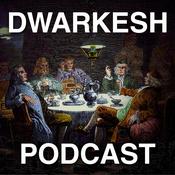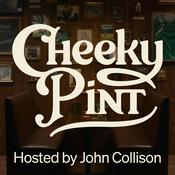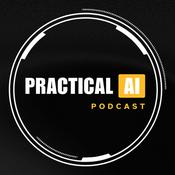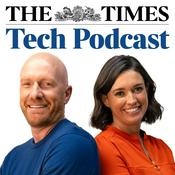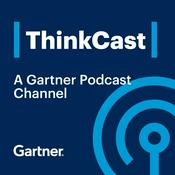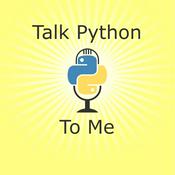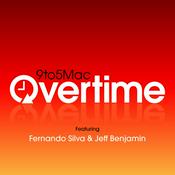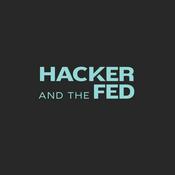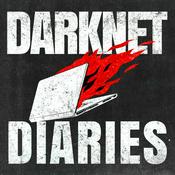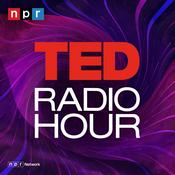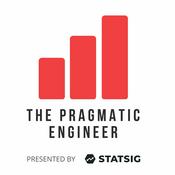11 episodes
- In this episode, we speak with Steven Pemberton, a pioneer of the early web, the first user in Europe to connect to the open internet, and a long-time contributor to standards at the W3C including CSS and XHTML. He also worked on the ABC programming language that heavily influenced Python.
Steven traces the origins of the web from Tim Berners-Lee’s original vision of a connected information system to the standards that followed, reflecting on how ease of use is sometimes in tension with ease of implementation.
Steven talks about one of his recent projects - Invisible XML – which rethinks markup from a schema inference perspective. Steven also talks about HTML5 and framework-driven web design application design. Ep #10: Markup Goes Beyond Tags: Rick Jelliffe on Language Markup, Structure & Semantics in XML
01/12/2025 | 1h 17 mins.Dive into an in-depth conversation with Rick Jelliffe, one of the most influential figures in the world of markup languages and structured data.
Rick's contributions to markup and markup standards span from SGML in the 1980s, XML in the Nineties, up to the present day. He brought his extensive expertise in character encoding to the work on the XML standard. This was a pivotal feature of XML, ensuring that multilingualism was baked right into the XML standard itself taking advantage of the Unicode standard.
He is perhaps best known as the inventor of the Schematron XML validation language, ingeniously utilizing XPaths to greatly extend what structures/constraints can be automatically validated in XML documents.Ep #9: The Web Before Google: Liam Quin on HoTMetaL, XML, and the First Web Standards
03/11/2025 | 1h 11 mins.The latest episode of Rule-Breakers features Liam Quin a pioneering figure in the world of electronic publishing and generalized markup. In this conversation, we learn about Liam’s journey from a childhood fascination with typesetting that started with the fonts used in his copy of The Lord of the Rings, to a lifelong passion for digital documents that included working at the W3C on the XML standard.
Liam and Sean explore the early days of structured content, the massive buzz that surrounded the emergence of the Web, the early Mosaic web browser, the world’s first HTML editor (HoTMetaL) and much more.Ep #8: The evolution of structured data formats — from XML to AI with Anthony Coates
06/10/2025 | 47 mins.Join Rule-breakers host, Sean McGrath and our latest guest, Anthony Coates, for a deep dive into the history and necessity of structured content. Drawing on his experience at Reuters and his work on major financial standards such as FPML, Tony recounts the various factors that allowed XML to break out and become successful, how FPML played a role in encouraging XML tool vendors to fully support W3C XML Schema language standard. In this wide ranging episode, other topics include Tony's thoughts on literate programming and vibe coding for AI.Ep#7: The quiet innovator: the building blocks of structured documents with James Clark
01/9/2025 | 56 mins.Ever wonder how websites and apps are built to look organized and work the way they do?
In the latest episode of Rule-breakers, Sean talks to James Clark, a true pioneer who helped create the hidden rules and structure that make the modern web possible. James talks about his incredible journey from the early days of computers and typesetting to becoming a central figure in shaping foundational technologies like XML.
He shares how he helped simplify complex coding languages to create a common 'blueprint' that everyone could use, influencing everything from how you browse articles to how data is shared across the internet. This is the story of a quiet innovator, whose work laid the groundwork for the web's biggest breakthroughs — even those you don't see.
More Technology podcasts
Trending Technology podcasts
About Rule-Breakers
Rule-breakers: the podcast about disruption in digital publishing.Every month, Rule-breakers host, Sean McGrath dives into the fascinating world of digital publishing, exploring how technology is reshaping a very important part of modern life: the way we create and access laws, standards, and guidance.If you’re curious about the forces affecting change in this space, you’re in the right place.
Podcast websiteListen to Rule-Breakers, All-In with Chamath, Jason, Sacks & Friedberg and many other podcasts from around the world with the radio.net app

Get the free radio.net app
- Stations and podcasts to bookmark
- Stream via Wi-Fi or Bluetooth
- Supports Carplay & Android Auto
- Many other app features
Get the free radio.net app
- Stations and podcasts to bookmark
- Stream via Wi-Fi or Bluetooth
- Supports Carplay & Android Auto
- Many other app features


Rule-Breakers
Scan code,
download the app,
start listening.
download the app,
start listening.




